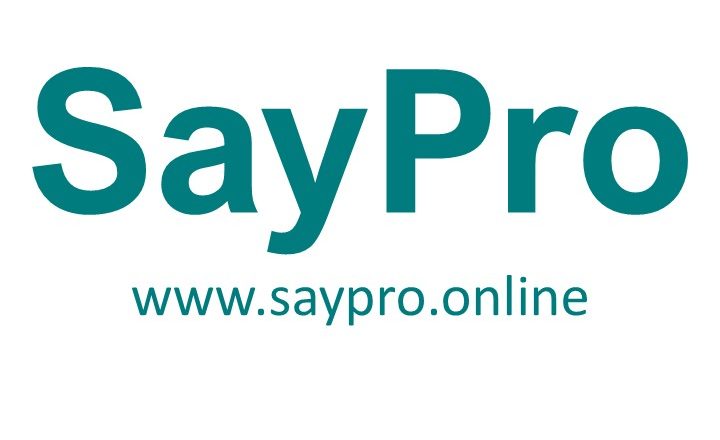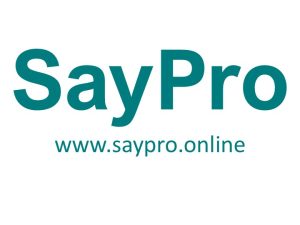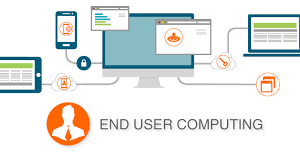SayPro Online Course in Home Based Personal Care Assistant 104779
- Description
- Curriculum
- FAQ
- Reviews
- Grade
Home Based Personal Care Assistant (NQF Level 2)
Are you a compassionate individual with a desire to make a tangible difference in people’s lives? The Home Based Personal Care Assistant (NQF Level 2) course is your stepping stone to a rewarding career in South Africa’s growing healthcare sector.
This nationally recognized qualification, accredited by the Quality Council for Trades and Occupations (QCTO) under the National Qualifications Framework (NQF Level 2), is specifically designed to equip you with the foundational knowledge and essential practical skills required to provide high-quality, person-centred care in the comfort of a client’s own home or in various community care settings.
What You Will Learn: Over approximately 6 months, this comprehensive program balances theoretical instruction with crucial hands-on training and supervised practical work experience. You will delve into 10 core modules, gaining expertise in:
- Fundamentals of Care & Professionalism: Understanding your vital role, adhering to strict ethical principles (confidentiality, dignity, privacy), and maintaining professional boundaries.
- Basic Health Awareness: Grasping fundamental anatomy, recognizing common health conditions (like diabetes and hypertension), and differentiating between normal aging and signs of illness.
- Safety & Infection Control: Mastering essential hygiene practices (e.g., handwashing), identifying and eliminating home hazards, and performing basic first aid.
- Personal Care Assistance: Providing dignified support with daily hygiene routines such as bathing, dressing, oral hygiene, and continence management.
- Activities of Daily Living (ADLs): Assisting clients with essential tasks like feeding, hydration, and promoting their independence in daily routines.
- Mobility & Transfers: Learning safe techniques for assisting clients with movement, positioning, and transfers (e.g., bed to chair) while protecting both yourself and the client from injury.
- Health Monitoring & Observation: Measuring basic vital signs (temperature, pulse, respiration) and developing keen observation skills to accurately report changes in a client’s condition.
- Nutrition & Meal Preparation: Understanding basic dietary needs, preparing nutritious meals according to specific requirements, and assisting clients with feeding difficulties.
- Household Support: Performing light duties to maintain a clean, safe, and organized living environment for the client.
- Communication & Documentation: Developing effective communication skills, providing emotional support, and maintaining accurate, concise records of care provided.
Why Choose This Course? This program emphasizes practical competence, with a significant portion dedicated to supervised work experience. You will gain invaluable real-world exposure, allowing you to confidently apply your skills and build your portfolio of evidence. Our focus is on nurturing compassionate caregivers who can enhance the quality of life for vulnerable individuals by preserving their dignity and promoting their independence.
Career Opportunities: Upon successful completion and obtaining your NQF Level 2 Occupational Certificate, you will be well-prepared for entry-level positions such as a Home Based Personal Care Assistant or Caregiver within private homes, home care agencies, frail care centres, or retirement villages across South Africa, including here in Pretoria. There is a continuous and growing demand for skilled professionals in this rewarding field.
-
11.1 CONTACT DETAILSText lesson
-
21.2 COMPETENCEText lessonThis lesson is locked because you haven't completed the previous one yet. Finish the previous lesson to unlock this one.
-
31.3 ASSESSMENT STRATEGYText lessonThis lesson is locked because you haven't completed the previous one yet. Finish the previous lesson to unlock this one.
-
41.4 ASSESSMENT PREPARATIONText lessonThis lesson is locked because you haven't completed the previous one yet. Finish the previous lesson to unlock this one.
-
51.5 AGREED ASSESSMENT PLANText lessonThis lesson is locked because you haven't completed the previous one yet. Finish the previous lesson to unlock this one.
-
61.6 Interview (RPL Purposes)Text lessonThis lesson is locked because you haven't completed the previous one yet. Finish the previous lesson to unlock this one.
-
71.7 LETTER OF COMMITMENT FROM THE LEARNERText lessonThis lesson is locked because you haven't completed the previous one yet. Finish the previous lesson to unlock this one.
-
81.8 Declaration of AuthenticityText lessonThis lesson is locked because you haven't completed the previous one yet. Finish the previous lesson to unlock this one.
-
91.9 PORTFOLIO BUILDINGText lessonThis lesson is locked because you haven't completed the previous one yet. Finish the previous lesson to unlock this one.
-
101.10 RECORD OF LEARNINGText lessonThis lesson is locked because you haven't completed the previous one yet. Finish the previous lesson to unlock this one.
-
111.11 ASSESSMENT DECISION & EVIDENCE EVALUATION RECORDText lessonThis lesson is locked because you haven't completed the previous one yet. Finish the previous lesson to unlock this one.
-
121.12 Assessor’s feedback report to the candidateText lessonThis lesson is locked because you haven't completed the previous one yet. Finish the previous lesson to unlock this one.
-
131.13 Moderator’s ReportText lessonThis lesson is locked because you haven't completed the previous one yet. Finish the previous lesson to unlock this one.
-
141.14 ASSESSMENT REVIEWText lessonThis lesson is locked because you haven't completed the previous one yet. Finish the previous lesson to unlock this one.
-
151.15 Candidate Appeal FormText lessonThis lesson is locked because you haven't completed the previous one yet. Finish the previous lesson to unlock this one.
-
161.16 Assessor's Contingency PlanText lessonThis lesson is locked because you haven't completed the previous one yet. Finish the previous lesson to unlock this one.
-
172.1 SayPro Lesson in Introduction to Home Based Care & ProfessionalismText lessonThis lesson is locked because you haven't completed the previous one yet. Finish the previous lesson to unlock this one.
-
182.2 SayPro Lesson in Basic Anatomy & Common Health ConditionsText lessonThis lesson is locked because you haven't completed the previous one yet. Finish the previous lesson to unlock this one.
-
192.3 SayPro Lesson in Infection Control & Safety in the HomeText lessonThis lesson is locked because you haven't completed the previous one yet. Finish the previous lesson to unlock this one.
-
202.4 SayPro Lesson in Assisting with Personal HygieneText lessonThis lesson is locked because you haven't completed the previous one yet. Finish the previous lesson to unlock this one.
-
212.5 SayPro Lesson in Assisting with Activities of Daily Living (ADLs)Text lessonThis lesson is locked because you haven't completed the previous one yet. Finish the previous lesson to unlock this one.
-
222.6 SayPro Lesson in Mobility, Positioning & TransfersText lessonThis lesson is locked because you haven't completed the previous one yet. Finish the previous lesson to unlock this one.
-
232.7 SayPro Lesson in Basic Health Monitoring & ObservationText lessonThis lesson is locked because you haven't completed the previous one yet. Finish the previous lesson to unlock this one.
-
242.8 SayPro Lesson in Nutrition & Meal PreparationText lessonThis lesson is locked because you haven't completed the previous one yet. Finish the previous lesson to unlock this one.
-
252.9 SayPro Lesson in Household Support & Environment ManagementText lessonThis lesson is locked because you haven't completed the previous one yet. Finish the previous lesson to unlock this one.
-
262.10 SayPro Lesson in Communication, Documentation & SupportText lessonThis lesson is locked because you haven't completed the previous one yet. Finish the previous lesson to unlock this one.
-
273.1 Introduction to Home Based Care & ProfessionalismAssignmentThis lesson is locked because you haven't completed the previous one yet. Finish the previous lesson to unlock this one.
-
283.2 Basic Anatomy & Common Health ConditionsAssignmentThis lesson is locked because you haven't completed the previous one yet. Finish the previous lesson to unlock this one.
-
293.3 Infection Control & Safety in the HomeAssignmentThis lesson is locked because you haven't completed the previous one yet. Finish the previous lesson to unlock this one.
-
303.4 Assisting with Personal HygieneAssignmentThis lesson is locked because you haven't completed the previous one yet. Finish the previous lesson to unlock this one.
-
313.5 Assisting with Activities of Daily Living (ADLs)AssignmentThis lesson is locked because you haven't completed the previous one yet. Finish the previous lesson to unlock this one.
-
324.1 Mobility, Positioning & TransfersAssignmentThis lesson is locked because you haven't completed the previous one yet. Finish the previous lesson to unlock this one.
-
334.2 Basic Health Monitoring & ObservationAssignmentThis lesson is locked because you haven't completed the previous one yet. Finish the previous lesson to unlock this one.
-
344.3 Nutrition & Meal PreparationAssignmentThis lesson is locked because you haven't completed the previous one yet. Finish the previous lesson to unlock this one.
-
354.4 Household Support & Environment ManagementAssignmentThis lesson is locked because you haven't completed the previous one yet. Finish the previous lesson to unlock this one.
-
364.5 Communication, Documentation & SupportAssignmentThis lesson is locked because you haven't completed the previous one yet. Finish the previous lesson to unlock this one.
Have a genuine passion for caring for others, especially the elderly, frail, or those recovering from illness/injury.
Are compassionate, patient, and empathetic.
Are looking for an entry-level qualification to start a career in healthcare or social support.
Are willing to work in clients' homes or community settings.
Want to contribute positively to the well-being and independence of vulnerable individuals.
A minimum of a Grade 9 or Grade 10 school certificate (or equivalent).
A good command of the English language, as the course material and client communication are primarily in English.
Some institutions may prefer or require a Foundational Learning Competence (FLC) Certificate in Communication and Numeracy.
A valid South African ID or a study permit if you are a foreign national.
A compassionate and caring attitude.
The course usually takes approximately 6 months to complete. This duration includes both the theoretical learning modules and a significant practical work experience component, which is crucial for applying learned skills in real-world settings.
Personal Care: Assisting with bathing, dressing, grooming, oral hygiene, and toileting.
Health & Safety: Basic infection control (hand hygiene, waste disposal), identifying home hazards, and basic first aid.
Mobility Assistance: Safe transfer techniques, positioning, and assisting with basic mobility aids.
Nutrition: Meal preparation according to dietary needs, safe feeding techniques, and hydration.
Observation & Reporting: Monitoring vital signs (temperature, pulse, respiration), recognizing changes in condition, and accurate reporting.
Communication & Ethics: Effective communication, maintaining confidentiality, respecting dignity and privacy, and professional boundaries.
Household Support: Light cleaning and organization of the client's immediate living space.
Home Based Personal Care Assistant
Caregiver
Personal Care Provider
Assisting in frail care centres, nursing homes, or retirement villages (often as an assistant)
Working with home care agencies
There is a growing demand for skilled and compassionate caregivers in South Africa, particularly with an aging population.

1. Academic and Educational Requirements:
- Minimum Schooling: Applicants are generally required to have a Grade 9 or Grade 10 Certificate (or its equivalent) from a recognized educational institution. This ensures a foundational level of literacy and numeracy necessary to comprehend course material and complete assessments.
- Foundational Learning Competence (FLC): While not always a strict prerequisite for entry, some training providers may prefer or require a Foundational Learning Competence (FLC) Certificate in both Communication and Numeracy. This certificate confirms essential functional skills needed for workplace literacy and basic calculations. If you do not have an FLC, some institutions may offer it as part of a bridging program or assess your competence during the application process.
2. Language Proficiency:
- English Language Fluency: A good command of the English language (both written and verbal) is essential. The course content, assessments, and communication with clients, their families, and supervisors will primarily be conducted in English. Your ability to understand instructions, ask questions, explain care procedures clearly, and maintain accurate records depends on strong English proficiency.
3. Personal Attributes and Qualities:
- Compassion and Empathy: A genuine desire to care for others, coupled with strong empathy and patience, is fundamental for this role.
- Responsibility and Reliability: Caregiving requires a high degree of responsibility, punctuality, and reliability to ensure clients receive consistent and timely care.
- Ethical Conduct: An understanding of and commitment to ethical principles such as honesty, integrity, confidentiality, and respect for dignity and privacy are crucial.
- Good Communication Skills: The ability to listen actively, communicate clearly and kindly, and adapt your communication style to different client needs.
- Patience and Emotional Resilience: Dealing with illness, disability, and sensitive personal situations requires significant patience and the ability to manage your own emotions.
- Observational Skills: A keen eye for detail to notice subtle changes in a client's condition or environment.
4. Identification and Legal Status:
- Valid South African ID: All applicants must possess a valid South African Identity Document (ID Book or ID Card).
- Study Permit (for non-South African citizens): International applicants must have a valid study permit for South Africa to enroll in the course.
5. Health and Physical Requirements:
- Good Physical Health: The role of an HBPC Assistant can be physically demanding, involving lifting, transferring, bending, and standing for extended periods. Applicants should be in reasonably good physical health and able to perform these tasks safely.
- Good Mental Health: The emotional demands of caregiving necessitate good mental well-being and resilience.
- Immunizations/Health Clearances (where applicable): While not always a universal requirement for NQF Level 2 entry, some training institutions or practical placement sites may require certain immunizations (e.g., Hepatitis B, Tetanus) or a basic health check-up, especially before commencing practical work experience in certain facilities.
6. Other Potential Requirements:
- Police Clearance (Criminal Record Check): Due to the vulnerable nature of clients, many institutions and all practical placement sites will require a recent police clearance certificate to ensure applicants do not have a criminal record. This is a standard safeguarding measure.
- Interview Process: Some training providers may conduct an interview as part of the admission process to assess your suitability for the caregiving profession, your communication skills, and your commitment.
Recent Posts
- Daily Activity
- SayPro Target key industry professionals and organizations to attend the event
- SayProCHAR Daily Activity Report for Itumeleng Malete SayPro Education Specialist 17/06/2025
- SayPro Ensure event content on the SayPro website is regularly updated and optimized for search
- SayPro Design and implement a marketing campaign using email, social media, and online ads to increase registration


